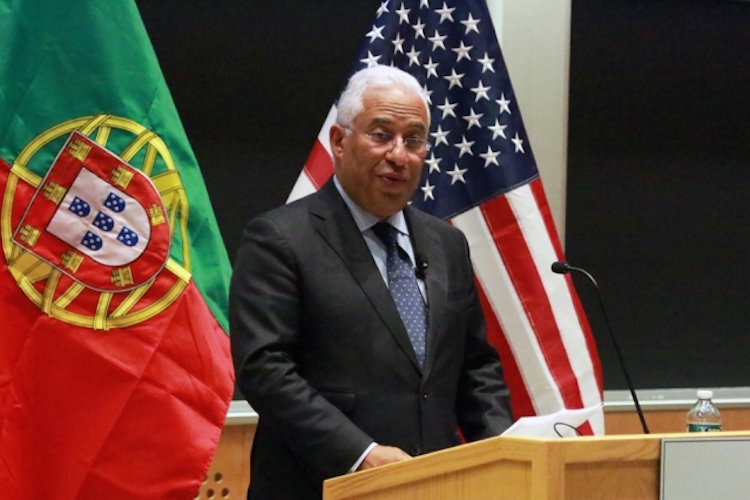Viewpoint by Reinhard Naumann
LISBON (IDN-INPS) – Until recently, polls indicated a clear victory for the Socialist Party (PS) in parliamentary elections in Portugal on October 6. Even the absolute majority seemed within reach for the PS under the leadership of current Prime Minister António Costa.
At the same time, the liberal-conservative parties, the PSD and CDS, were heading for historic lows. They had to fear that their total share of votes would fall below the 30 per cent mark and, in this way, lose their blocking minority against constitutional amendments by the left. A horror scenario for the conservative camp.
During the election campaign, however, the PSD slowly improved its polling and the resurgence of a scandal about a 2017 arms theft from an army camp gave it further momentum. In the latest polls, the PSD is only seven percentage points behind the PS.
In the face of this new situation, the final phase of this election campaign will be very tough for the Socialists, who could already consider themselves to be the undisputed victors. The formation a new government is also likely to be more difficult than expected.
Despite the PSD’s stronger polling in the last few days, we can expect the PS and those parties that have supported and helped shape the work of the Socialist minority government since 2015 will receive the absolute majority.
The PS stands at 35-37 per cent in the polls, the Left Bloc (BE) at 10 per cent and the Orthodox Communist Party (PCP) at six to eight per cent. Moreover, the party ‘People–Animals–Nature’ (PAN) needs to be taken into account; it supported the PS government in some decisive votes. PAN can count on three per cent of the votes, doubling its 2015 result.
A success for the left
The left-wing alliance is expected to be victorious because of its political successes in the current legislative period. Contrary to all expectations, the alliance of the PS and the Left proved to be solid and politically stable. The economy and employment recorded good growth rates, public finances developed very positively and measures such as raising the statutory minimum wage, salaries in the public sector and social benefits increased the disposable income of the population.
Moreover, the PS government, supported by the Left, strengthened state social security and public schools. The provision of health care and public transport was also improved.
The PS boasted of these successes in the election campaign. It was able to point out that its growth-oriented policy increased prosperity and at the same time pushed forward the consolidation of public budgets. This way, it deprived the right-wing parties of the central argument against its policies and was able to present itself in a positive light to voters standing further to the left.
In the course of the election campaign, however, the disagreements between the PS, the left-wing Bloc and the Communists inevitably emerged, especially in areas such as labour legislation, taxation of financial returns and housing policy. The question now is whether, despite the sometimes profound differences of opinion after election day, those involved will come together to renew the alliance with an updated agenda.
There are hints that the Orthodox Communists want to get out and return to their traditional role of fundamental opposition. The Left Bloc, on the other hand, may be prepared to continue the experiment under certain conditions. According to current polls, the PS and the Left Bloc together would have an absolute majority in parliament.
Given the positive results of the PS’ cooperation with the radical left, the continuation of this experiment – albeit in a different composition and form – could consolidate the path taken towards a growth-oriented and social policy. But only the elections will show what room for manoeuvre Portugal’s Left has in the years to come.
* Reinhard Naumann, who represents the Friedrich-Ebert-Stiftung in Portugal since 1996, works as a freelance consultant and researcher in the areas of employment policy and industrial relations for, amongst others, the European Observatory of Working Life / EurWORK and the European Observatory Employment Policies Observatory / EEPO. International Politics and Society Journal carried this article. [IDN-InDepthNews – 04 October 2019]
Photo: Prime Minister of Portugal António Costa addressing a full house in the Kirsch Auditorium at the Stata Center, which included many students in the MIT Portugal Program. Credit: Allegra Boverman | MIT News.
IDN is flagship agency of the International Press Syndicate.
www.facebook.com/IDN.GoingDeeper – https://twitter.com/InDepthNews

